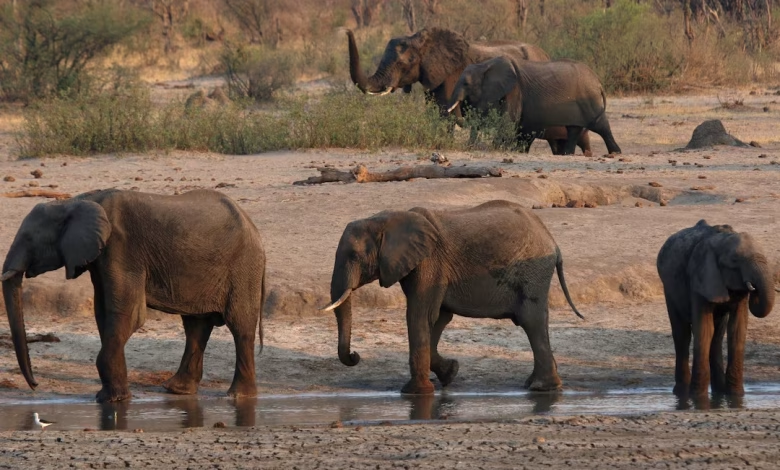Zimbabwe to Cull 200 Elephants to Address Drought-Induced Hunger

- The cull aims to alleviate hunger for communities affected by severe drought conditions
- The decision addresses overcrowding, with over 84,000 elephants in a region
- Increased human-wildlife conflicts are expected as resources become scarcer
Zimbabwe has announced plans to cull 200 elephants to provide food for communities suffering from severe hunger due to the worst drought in 40 years, according to wildlife officials.
The drought, driven by El Niño, has devastated crops across southern Africa, leaving 68 million people facing food shortages.
Tinashe Farawo, spokesperson for the Zimbabwe Parks and Wildlife Authority (Zimparks), confirmed, “We can confirm that we are planning to cull about 200 elephants across the country.
We are working on modalities on how we are going to do it.” The elephant meat will be distributed to drought-affected communities.
This cull, the first since 1988, will occur in the Hwange, Mbire, Tsholotsho, and Chiredzi districts. It follows a similar decision by Namibia, which recently opted to cull 83 elephants for the same purpose.
Zimbabwe is home to over 84,000 elephants, significantly above the parks’ sustainable capacity of 55,000. Farawo explained that the cull is also aimed at relieving overcrowding in wildlife areas:
“It’s an effort to decongest the parks in the face of drought. The numbers are just a drop in the ocean because we are talking of 200 elephants while we have over 84,000.”
As resources dwindle, conflicts between humans and wildlife may rise; last year, 50 people were killed by elephants in Zimbabwe.
The nation, known for its successful conservation initiatives, is advocating for the reopening of ivory and live elephant trade with the U.N.’s Convention on International Trade in Endangered Species (CITES). Zimbabwe has around $600 million worth of ivory stockpiles that it cannot sell.






